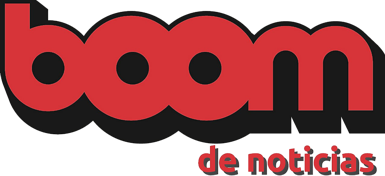Inside Blued: China’s Leading Gay Matchmaking App Comes World
Baoli Ma, the president and Chief Executive Officer of on the web LGBT+ platform BlueCity, discusses the firm’s increase and Asia’s appearing LGBT+ neighborhood.
That being said, Baoli Ma have brought a non-traditional life. Within the last 2 full decades, Ma changed on his own from a closeted homosexual policeman into certainly one of China’s foremost LGBT+ activists and computer company. So when a lot as Ma is concerned, he’s only making an actual start.
Originally from 1977 in China’s Hebei province, Ma (also known by his or her pseudonym Geng Le) realized he had been homosexual as he was 17. But embedded cultural pressures and not enough public acceptance held him from coming-out. On additional refractive times, Ma would sit down by itself and ponder whether he was this is the “only weirdo around.”
If the online development strike Asia in 1998, Ma drove in search of responses on hometown websites and social networks systems. But to their horror, the man experienced a barrage of negative statements and retrograde portrayals of homosexual life.
Converting his focus beyond Asia’s boundaries, Ma checked out several popular intercontinental organizations, along with the industry wellness Organization in addition to the American mental relationship, and found a completely different worldview in contrast to one he previously matured with.
It dawned on Ma that homosexuality was acknowledged, if not famed, in many nations in West. And most importantly: he had beenn’t by yourself.
Ma settled on his own to helping rest read and accept their own sex, unveiling the site “My orange storage” in 2000 in order to express particular reports and info about gay lives.
This site bit by bit evolved into a foundation titled Danlan market attention, which raise additional recognition related HIV and AIDS prevention. Which means “light blue” in Chinese, Danlan sources Ma’s home town, the port city of Qinhuangdao.
“i desired to tell additional gay people in Asia that they’re maybe not ill and don’t want approach,” he states, making reference to sale remedy, that had been outlawed in Asia in 2014. “Furthermore, i planned to talk about clinical information about homosexuality and encourage the general public to acknowledge the LGBT+ community.”
A Double Living
If you wish to protect his or her recognition, career and finish familial anticipations, Ma encouraged a fatiguing dual daily life for upwards of a decade. In daytime Ma labored as a police officer; when the sun goes down, the man handled the charity websites Danlan.org, responding to several hundred communications everyday and working before early several hours of this daily to keep up with questions.
Ma reported he had been gay in a 2011 interview about his charity hire Sohu, an internet syndication in China. As soon as the meeting published, Ma gotten a flood of information from contacts asking him exactly how and why he previously instantly come to be homosexual.
Although China decriminalised homosexuality in 1997 and later got rid of it within the formal a number of emotional illnesses in 2001, the nation continue to brings a ‘don’t solicit, don’t inform’ solution. Successfully, because of this developing is still a very important test for homosexual folks since acceptance in Chinese society continues to be lower.
The interview furthermore challenging Ma’s professional lives. His colleagues at the consumer safety Bureau shunned your, while his or her boss required your to consider between his or her task and so the site. Ma chose the second, and also at the amount of time he or she recall thought: “This is absolutely not about me but on the hundreds of thousands of netizens Danlan has actually aided.”
After resigning from the police force, Ma transferred to Beijing to give his own time and energy to LGBT+ advocacy. Thank goodness for him, mobile innovation was beginning to take off plus it was at this rich planet that BlueCity grew up in 2011.
Tucked within Chaoyang, a Beijing companies region home to more than 3,600 nationwide intricate corporations, the head office of BlueCity echoes they’s vibrant and comprehensive character. Striking cartoons and cases men and women keeping rainbow flags adorn the areas while conference spaces tends to be named after LGBT+ films, just like successful with each other japanese sex dating site, Beauty, and Lan Yu.
The office also supplies gender-neutral lavatories for LGBT+ staff memebers, whom constitute over fifty percent of the business’s 500-some people. “In BlueCity, consumers can express her sex personality and sex readily, without the presense of concern about being treated in another way or jeopardising their own positions.”
On the face of it, BlueCity was a web development team that focuses on servicing the LGBT+ neighborhood across the world via software, on the web health platforms and community actions, such as dealing with appropriate NGOs on HIV reduction.
Its best-known products include Blued, which came out in 2012 as the primary homosexual online community apps in Asia, whilst the providers in addition operates many online healthcare and families planning networks, instance Danlan open focus, the man Health, and Bluedbaby.
Whenever creating the matchmaking software, Ma learn a unique possibility, given that almost all of his LGBT+ close friends struggled with English-language software like Grindr or Hornet. “I have to assist [gay people in China] uncover absolutely love,” he states. “With mobile, you can incorporate all of our geolocation to touch base with homosexual consumers near.”
In the event it released in 2012, Blued rated 9th to the software Store inside the primary week, as per the service. Like many homosexual a relationship programs, Blued allows users for connecting and talk with promising goes, together with livestream. Unlike different homosexual programs, however, it also supplies medical and parents designing solutions, to tackle the on a daily basis requires regarding the LGBT+ citizens.
This July, BlueCity had record as the very first gay social media for openly exchanged to the Nasdaq stock market, raising more or less US$85 million from its original community offering.
